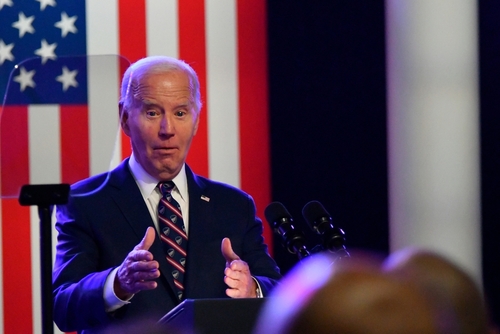
In recent times, the health and mental acuity of our nation’s leader have come under scrutiny. With President Joe Biden now in his eighties, concerns about his cognitive abilities have sparked a debate on the necessity of transparent health assessments for those at the helm of the country’s leadership.
BREAKING: White House confirms Biden will not take a cognitive test as part of his upcoming physical exam.
Biden will be first U.S President in history to refuse a cognitive test. pic.twitter.com/q11OkJHxEP
— Financelot (@FinanceLancelot) February 13, 2024
The first paragraph of the article would introduce the topic by highlighting the growing public concern regarding President Biden’s mental and physical health. A recent NBC poll indicated that 62 percent of voters harbor ‘major concerns’ about the President’s well-being. This worry is not unfounded, given the critical nature of the President’s role in national and global affairs.
In the second paragraph, the article would delve into the history of cognitive testing among presidents, noting that former President Donald Trump underwent the Montreal Cognitive Assessment (MoCA) and scored a perfect 30 out of 30. Trump’s voluntary participation in the test set a precedent for transparency, which some argue should be continued by his successor.
'I Don't Need A Cognitive Test!' Biden Screams At Pigeon https://t.co/VSfP8KTEUa pic.twitter.com/qge02lbSWC
— The Babylon Bee (@TheBabylonBee) February 13, 2024
The third paragraph would describe the MoCA test in detail, explaining its purpose as a tool to identify mild cognitive dysfunction, a potential precursor to dementia. It would outline the various components of the test, including concentration, attention, memory, language, calculations, orientation, executive functions, and visual skills.
The fourth paragraph would discuss the implications of the test results, emphasizing that a score above 26 is considered ‘normal,’ while anything lower could indicate cognitive decline. It would also mention that the average score is 27.4, with lower averages for those with mild cognitive impairment and Alzheimer’s disease.
In the fifth paragraph, the article would address the recent DOJ report that described Biden as an ‘elderly man with a poor memory.’ It would raise the question of whether such descriptions from official sources warrant a formal cognitive assessment for the President.
The sixth paragraph would present the argument from a conservative perspective, stressing the importance of having a commander-in-chief who is fully capable of making sound decisions. It would suggest that undergoing cognitive testing and releasing the results would demonstrate accountability to the American people.
The seventh paragraph would explore the broader implications of cognitive health transparency for all high-ranking officials, suggesting that it could become a standard part of medical evaluations for those in critical positions of power.
Finally, the eighth paragraph would conclude by reiterating the call for transparency and the potential benefits of establishing trust between the electorate and their leaders. It would underscore the non-partisan nature of health and the universal need for a cognitively sound presidency.
In summary, the article would advocate for President Biden to undergo cognitive testing and make the results public, framing this as a matter of national interest and security. It would emphasize the need for transparency and accountability, particularly when it comes to the health of the individual tasked with leading the nation.










